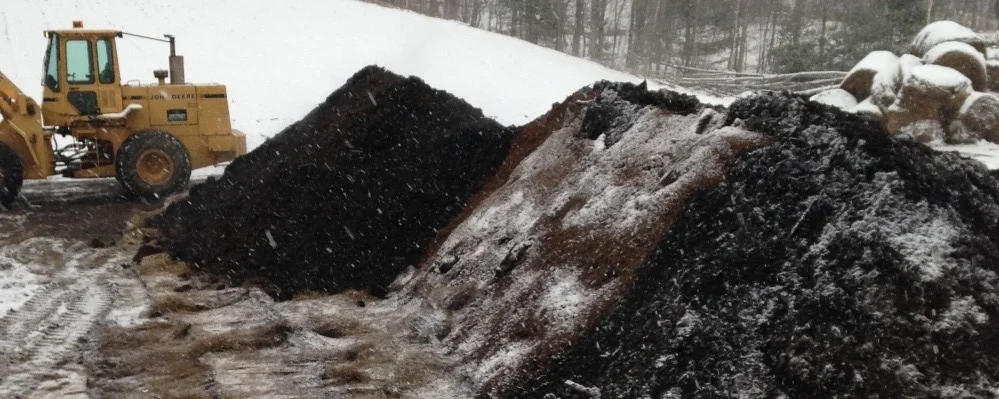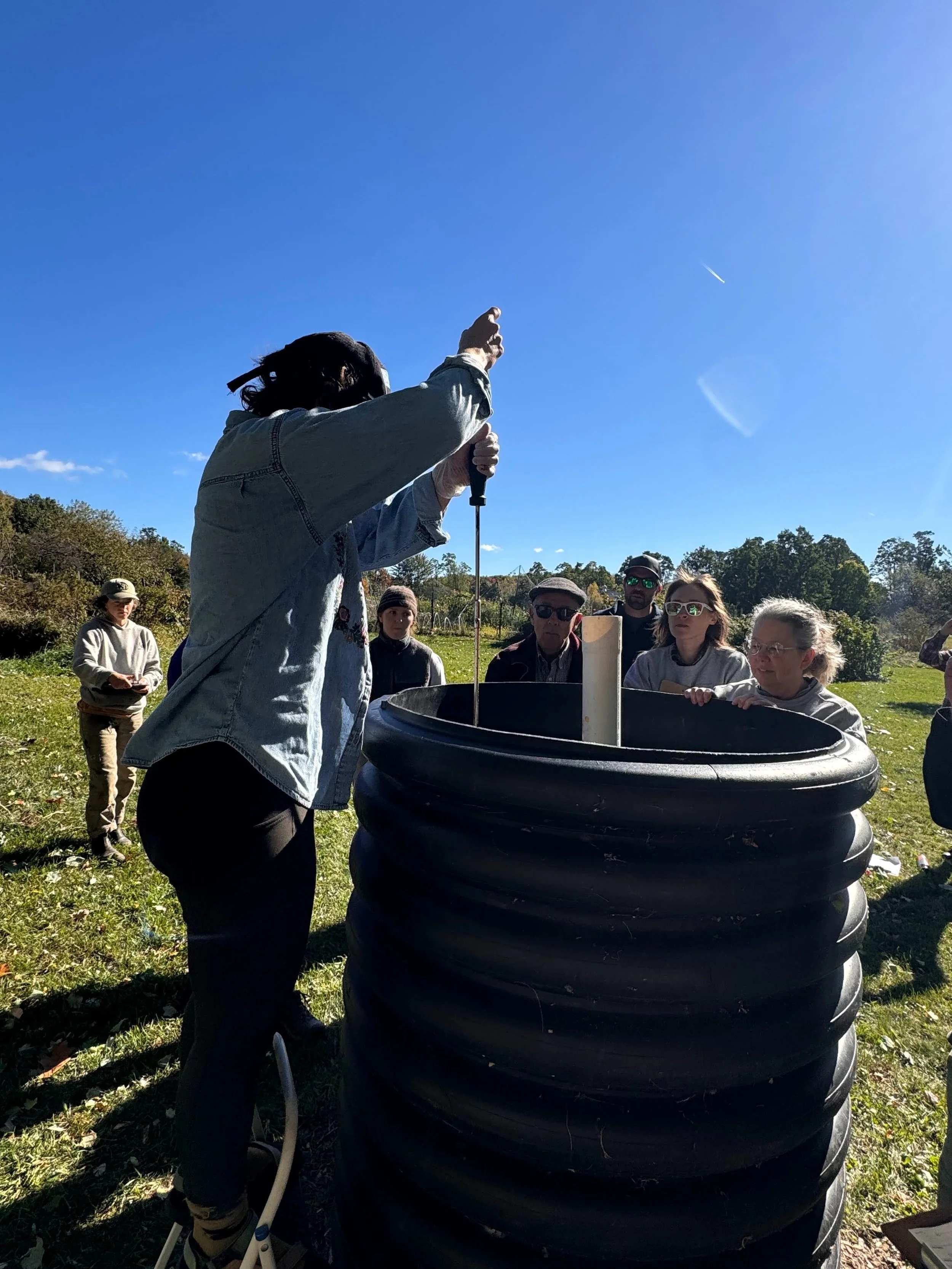Master Composter students get hands-on experience at one of Soil Cycle BTV’s community composting sites in Burlington. Photo credit: UVM Extension Community Horticulture Programs.
Our Vision
At CAV, we envision a Vermont where composting fuels healthy soils, supports sustainable agriculture, and strengthens resilient communities.
Our Mission
As the only organization in the state dedicated solely to advancing composting, we work to transform how people think about organic materials—treating them not as waste, but as valuable resources.
CAV’s mission is to promote the production and use of compost as a vital link between sustainable agriculture, healthy communities, and strong local economies. We work to support:
Market development
Equitable access to composting resources
Science-based compost standards
Together, we’re working to build an environmentally sustainable composting infrastructure across Vermont and the broader Northeast.
How we work
We collaborate with partners, lead projects, and engage in policy conversations to promote composting as a solution to environmental and agricultural challenges.
By bringing together farmers, educators, neighbors, and policymakers, we turn composting into a tool for meaningful local change.
Through hands-on education and real-world demonstrations, we help Vermonters understand the vital connection between healthy soils, clean water, climate resilience, and strong local economies.
By promoting the composting and the use of compost, we help communities:
Reduce waste and pollution
Improve soil and water quality
Grow local food systems
Build circular economies
The Value of Compost
Compost keeps valuable carbon in soils where it improves soil and plant health for multiple social and environmental benefits. Increased soil carbon helps:
Re-establish a robust Soil Food Web ecosystem
Filter and store stormwater runoff for cleaner streams rivers and lakes
Absorb and store water in soil to reduce erosion and flooding, recharge groundwater and improve drought resilience
Improve crop health and decrease need for expensive agricultural inputs
Communities adapt to rapid changes in the climate and extreme weather events

Compost supports vibrant local economies by creating sustainable businesses and jobs, strengthening local food systems, and transforming organic byproducts into valuable resources.
Composting builds carbon-literate communities experienced in the use of science-based knowledge to effectively compost community generated organic residuals.
Addressing the complex challenges of compost production and expanding its use requires diverse partnerships and engagement in statewide policymaking.






